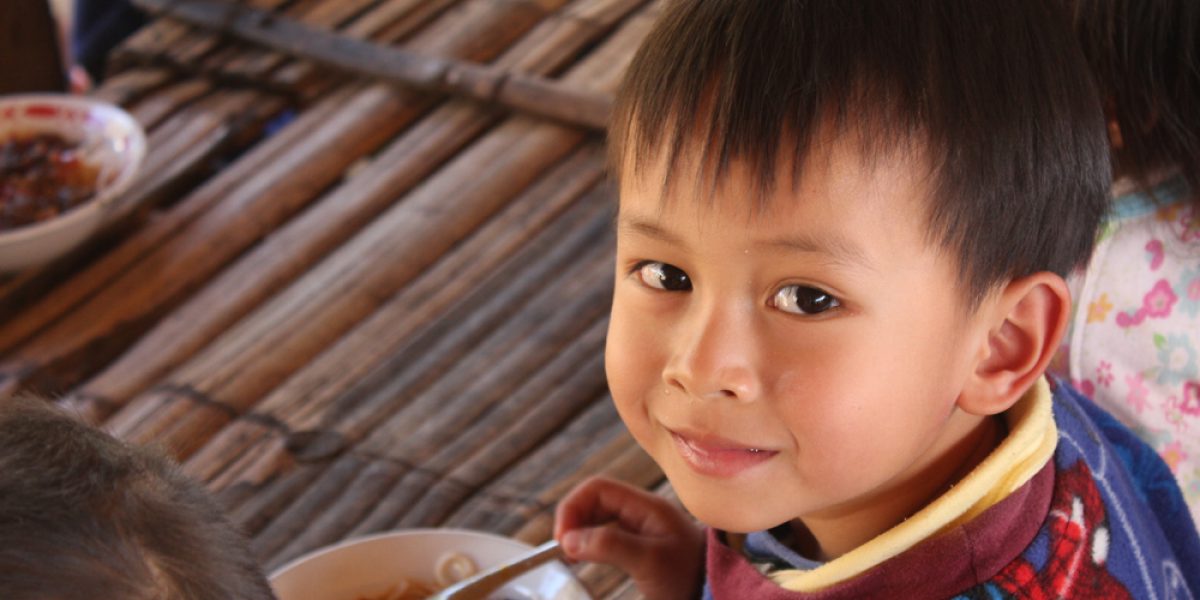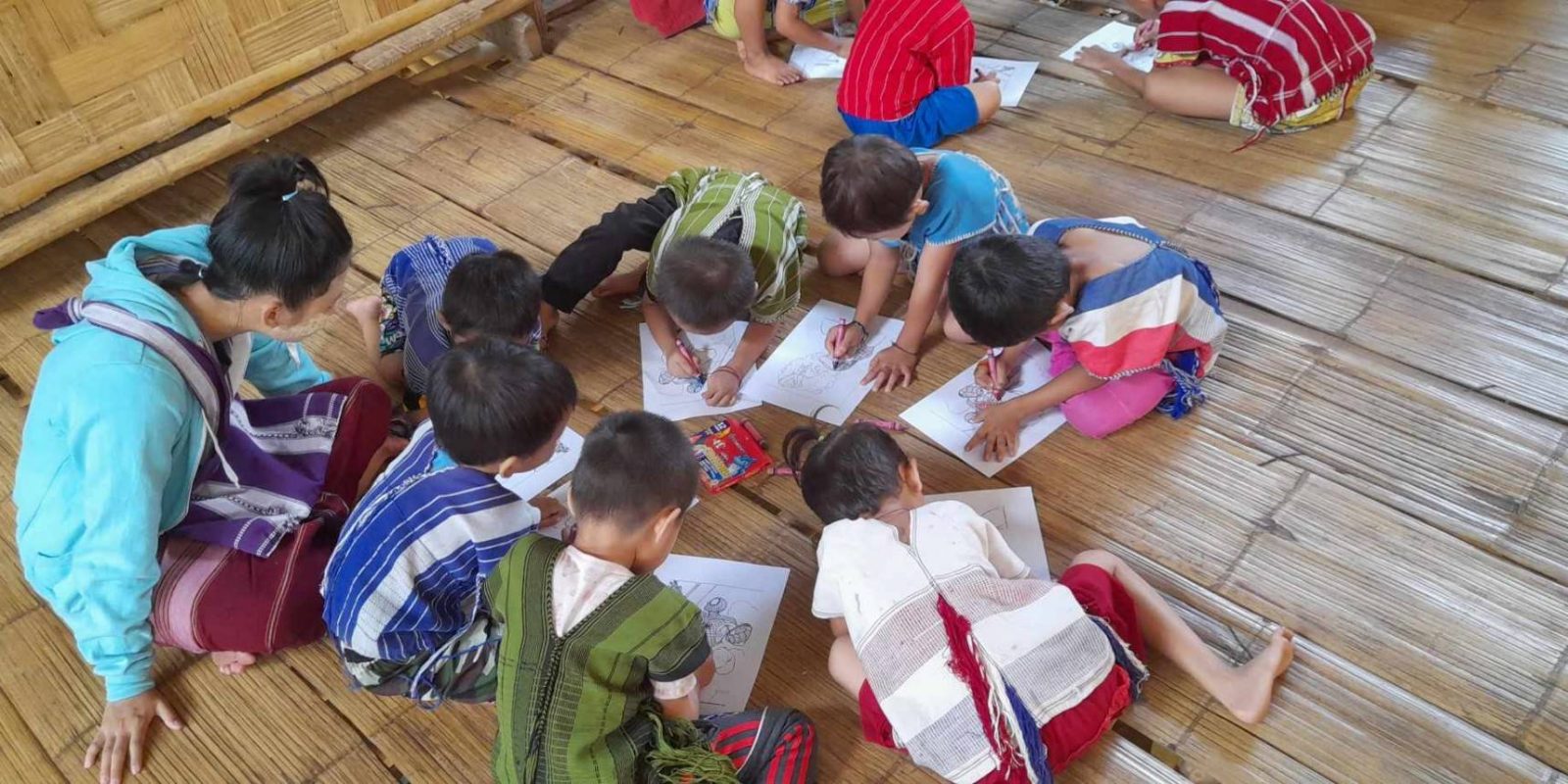Thailand: Shan and Lahu children face risks in northern Thailand
10 March 2011|Oliver White

Bangkok, 10 March 2011 – Growing up in the Shan area of Northern Thailand is not easy. Without legal papers, work is hard to find, so from birth many are resigned to a life of – at best – manual field labour, or – at worst – drug trafficking, prostitution or prison.
“There’s a problem here with drugs and prostitution,” explained Mr Kamlek, a caretaker at a local orphanage for at-risk youth.
The Shan people are an ethnic minority of northern Burma. In 1962 when Burma’s democratically elected government was overthrown, Shan State was abolished. Since then, this group has been treated as second-class citizens, clashing with the Burmese military over the past 40 years. Conflict, systematic human rights abuses and repressive policies caused thousands of Shan refugees to seek protection in Thailand.
But the Thai government does not recognise the Shan people as refugees and has not allowed them to set up refugee camps along the border. Still, nearly 500 Shan people reside in an unofficial camp called Kung Jor, a few dozen bamboo homes on a dusty hill.
They are not permitted to register with the authorities, leaving them vulnerable to exploitation, unable to access social welfare programmes or seek resettlement. Many are forced to depend on others or enter Thailand’s unskilled labour market as migrant workers. They do difficult and dangerous work for less than US$3 a day.
But outside of the Kung Jor camp, live other groups of vulnerable people such as the Lahu. The Lahu are hill tribe people from Northern Thailand. They live in the same community as the Shan, and though they have lived in this country for generations, they are still considered legally as second-class citizens. Some are forced to earn money from trafficking methamphetamine or shabu, as it is known in Thailand. The border area near Wiang Haeng is a notorious drug smuggling route from Burma into Thailand. The risks are high with Thailand regularly administering the death penalty for serious drug related crimes.
“When they sell drugs it has a big effect on the whole family, but it is hard to find work in the villages, even on the farms. Drug smuggling is often their only option to earn money,” Mr Kamlek said.
His orphanage, supported by JRS, takes in at-risk children from Burma and surrounding communities, ensuring their safety and education.
He along with his staff are trying to protect them not only from drugs; HIV and AIDS is also a serious problem, destroying families and leaving children without parents.
“Some Lahu women and young girls are forced to work as prostitutes in Chiang Mai and they carry the disease back to the village,” he said. “The parents of two children in this orphanage died from AIDS.”
Mr Kamlek and his team seem at a loss on how to deal with these intractable problems and their devastating impact on the community.
“These two problems will create more orphans in the district and surrounding villages,” Mr Kamlek said, not knowing how he and his team can accommodate any more children.
Risk faced by children and support for orphanages
Some children join their parents to escape the conflict and poverty, making it hard for them to claim citizenship in Burma. Others are born in Thailand, never seeing their homeland. Because they are stateless they have limited access to education, health care and freedom of movement.
For those without a safe place to live, Lahu orphanage offers some refuge. Perched upon a dusty hillside and overlooking an ostensibly quiet village called Kae Noi, the orphanage is home to 27 children. Not all the children are without parents but left because of problems at home. “The orphanage protects the children from social and family problems and also poverty,” Mr Kamlek said.
Those children fortunate enough to have a bed at the any of the area’s orphanages are the lucky ones. Children without parents who live in the village have to work for a host family and are unable to attend school.
“Some ask to stay here over night because they are scared to return to the host family, especially if the work is unfinished,” Mr Kamlek said.
Significant funding cuts forced the caretakers and teachers to find alternative sources of income. The decision to grow mushrooms and vegetables was supported by JRS with seedling funding for equipment, materials and agricultural expertise. The Lahu orphanage now grows enough vegetables to feed everyone and even has some left over to sell in the village to raise extra funds. However, money is limited and the orphanage is unable to care for every child in need.
“Some years orphans approach us but we cannot take them. We do not have the resources to take care of everyone. They end up staying with someone in the village. This means they are forced to work instead of having access to real education,” Mr Kamlek said.
Support for schools
Although Thailand mandates education for all children, regardless of their status, many do not speak enough Thai to keep up in class, or cannot afford the expenses like uniforms and transportation.
Through the generosity of donors, JRS provides financial assistance and teacher training to three schools in the area, agricultural materials and support for a livelihood project in Lak Tang Primary school. This school now produces enough mushrooms and vegetables to feed the students and supplements the schools’ income. JRS provides scholarships for children most at risk from dropping out to reduce the risk of trafficking, child labour and prostitution.
Wi Lai Poli is an eighth grade student who was awarded a scholarship by JRS so she could continue her studies. Despite being so young, Wi Lai is acutely aware of the importance of school.
“If I was not at school I would work in the farm or go to Chiang Mai,” Wi Lai said.
Inspired by her English and maths teacher Wi Lai not only wants to continue her secondary education but would like to make it her vocation.
“I want to be an English teacher. I want to share my knowledge with others like me.”
JRS currently provides 18 scholarships a year. Last year over 200 students applied. To maintain social harmony in the community JRS also shares 20 percent of scholarships with Thai children.
While the situation for Shan and Lahu children remains complex and dangerous, community leaders remain dedicated to the cause. A Shan community leader has organised English classes for the community, teachers remain dedicated to seeing their students continue their education, and those running orphanages are determined to keep their children safe. While a bright future may seem hard to see, both community leaders and dedicated students refuse to give up.
Oliver White, regional communications and advocacy officer
* names changed to protect identity


